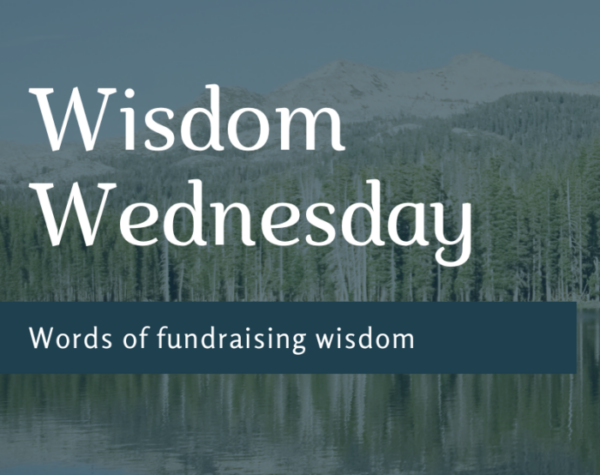Tell Good Donor Stories
What if I told you the tips, tricks, and techniques that could make your donor stories more engaging.
SO engaging, in fact, that your donors would respond to it.
I mean, that’s what we’re looking for, right? The donor response.
The key to donor response comes from a good donor stories. But, I have to tell you something interesting. Your donor IS going to respond whether your donor story is good or bad. The question is–will they respond POSITIVELY or NEGATIVELY?
We’re going for POSITIVE. Lot’s of hand raising and generous giving, too.
So, let’s use this little tutorial to give your donor stories a mini-assessment to make sure they pack a positive punch.

What makes a donor story GOOD?
Like you, we spent a lot of time interviewing donors and writing their inspiring stories. These everyday people make extraordinary impacts through planned gifts when they include their favorite nonprofit organizations in their estate plans. They’re often leaving substantial gifts via their wills, trusts, retirement plans, life insurance, etc.
Good stuff. Great stories. These people really CARE.
Not only do we write donor stories, we read tons of donor stories on websites, in newsletters and in fundraising appeals. You probably do, too, and notice that some grab you immediately–and some of them you don’t even finish. Have you ever wondered why some are memorable and others aren’t? What makes some donor stories good and some BAD?
Here are FOUR FAILS that make people stop reading. These things distinguish a good donor story from a bad one. Use this information to assess your donor stories to make sure your stories get a POSITIVE response.
Donor Stories are BORING because they’re TOO LONG.
But … wait! … “Our donors LOVE to read what we send them.” That may be true, but even when you love a good novel, you lose interest if the author drags the story out too long. Same with your donor stories! If the stories are too long, people drop off. And here’s the worst part: when the story goes on and on and never even mentions the OUTCOME/END RESULT of the donor’s gift/action! That’s the part of the story that inspires people. When you leave that part out, there’s no reason to respond!
What you can do about it: Before you publish a donor story, make sure it includes a positive and inspiring outcome/result! Then … test it on your friend with the shortest attention span. If you ask her to read it and she skims to the end, you need to cut your story in half.
Donor Stories are BORING because they don’t communicate the WHY.
That’s right, some donor stories actually forget to mention the larger cause or mission that inspired the gift! Typically, donor stories include something about how great your organization is, but donors don’t give a gift because the organization is great. The real reason they make a gift is because they care about your mission. Maybe it’s educating the next generation of students, protecting the environment, feeding the hungry, housing the homeless, or helping patients with cancer. That’s the story: the people you help.
What you can do about it: Simply include the “why” right up top. “Every time Matilda Warfield hears about a student who can’t afford college, she remembers how she struggled to pay for college and how it felt when she was awarded a scholarship. She still remembers opening the letter and crying with relief, knowing she would be able to continue.” This is the WHY Matilda gives. She remembers the relief. She wants to pass that to more students. And it’s what will make other donors raise their hands, too.
Donor Stories are BORING because they don’t actually tell a story.
Your potential donors want to be a part of something amazing. It’s just human nature to want to be on the winning team, to want to make a difference in someone’s life, to want to do something that matters. The point of donor stories is to show someone (through a story) how a single individual can make an impact. But if you’re telling a story about a donor whosays they gave because “you called me” or “out of habit” or “it’s my school, so I’m supposed to” they’re not a good candidate for a donor story! Duty, obligation, guilt, desperation … these emotions aren’t emotions that inspire planned gifts.
What you can do about it: Find the best donor stories by listening for moments. You want to capture the moment the donor realized someone’s else’s gift impacted them, so they are making a gift to repeat the impact. This works even if you’re speaking to the very wealthy who may not have needed financial assistance. For example, a couple leaves a planned gift to their child’s private school because they realized their child’s academic experience is a result of forward-thinking philanthropists from earlier years. Now they want to continue to continue that opportunity for future generations.
Donor Stories are BORING because they talk about the donor too much.
Your readers don’t need to hear every detail about your donor: her role on the board, her PhD, her nine grandchildren, and her volunteer work. They want to know what inspired your donor to make a gift. Remember, a power story tells the WHY, not the WHO.
What you can do about it: Stick to the WHY, and use tiny, pertinent details to personalize the why. “Every time Matilda Warfield hears about a student who can’t afford college, this retired nurse and Army veteran remembers how she struggled to pay for college.”
Number 4 is super important, not only to keep donors interested, but also to attract more donors for these stories! Many donors want to remain anonymous because they don’t want to look like a hero for something that is often very personal. Here’s an example of a donor we’ll call “Maryann.” Maryann was a bit hesitant about sharing her donor story because she said she’s “not a showy person.” So we showed Maryann examples of other donor stories. Once she read them, she understood. “Ok, I’ll do it,” she said, “I see that the stories are about why we help.”
Exactly.
Good donor stories are not “about” your donor. They’re about WHY your donor cared enough to write a check/donate their car/put your charity in their will.
Want donor stories that move your readers? Let us write them for you!
Call us now at 484-680-7600.
Inspire Through Stories
Real-life, power stories of your donors are your best resource for uncovering new prospects. Download this guide to access writing tips that help you inspire your donors through story telling.

70 ½ vs. 73?
70 ½ vs. 73? We’ve been hearing some confusion from a lot of clients around the age split of 70 ½ vs. 73 for gifting from an IRA. Which is the correct age? What are the rules around each age? When it comes to marketing this great gifting strategy, the problem is both...

Wisdom Wednesday – Are you 85?
Are you 85? I didn't think so ...We've talked about the mindset of our most senior donors in the past. And we'll most likely talk about it forever. Why? None of us know what it's like to be 85 - unless we're 85.We've all been 16 before. Most of us have even recovered...

Generational Marketing – Traditionalists
Generational Marketing - TraditionalistsTraditionalists include those aged 77+ and will be a key group when it comes to your planned giving outreach.Learning how to communicate with this portion of the population is important for your success. Discovering the nuances...
Tech Tuesday – IRS Discount Rate
IRS Discount Rate With the signing of the Consolidated Appropriations Act of 2023 and the provision referred to as Secure 2.0, there is newfound interest around Charitable Gift Annuities* (CGAs). Because of this we’re all becoming reacquainted with the IRS...
